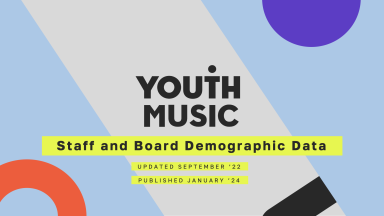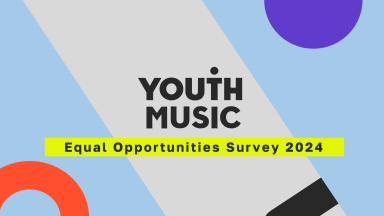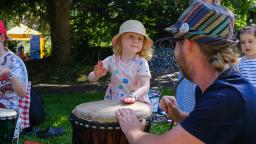
Background
As our workforce has diversified, we’ve seen first-hand how a greater range of views, skills and lived experience strengthens our organisation. Annually, we collect workforce the diversity data of our Staff, Trustees and Freelance team. This helps us to understand the diversity of the people we work with, and how this has changed in response to actions we’ve taken. It also informs our priorities for the coming year. Scroll down to review the Staff and Trustee data from the last three years, and learn more about how we collect and analyse the data, discuss it with our team, and take action.
Methodology
In our recruitment process, we collect Equal Opportunities data from individuals applying for roles at Youth Music, including freelance positions, staff roles and board positions. We also conduct annual data collection with our staff team and Board of Trustees. We review our workforce data after each recruitment round, during bimonthly Managers meetings and annually as a staff team through the IDEA Working Group.
An aspect of our analysis is comparing our workforce to London Working Age population data, which helps us to understand which communities are underrepresented among both staff and trustees. To proactively address identified gaps, we regularly review our targets for future recruitment cycles. Each job pack is accompanied by a statement that encourages applications from members of specific backgrounds and communities, reflecting current need.
The data within this report represents our staff team including the Board of Trustees. Read more about our Staff and Trustees here on our website.
Key findings for 2022
• This analysis is of data collected September 2022. The survey received 30 responses, which is an 86% response rate.
• Significant increase in the proportion of staff within the 25-34 age group, climbing by 20% to 70% compared to the previous year.
• Almost three quarters (73%) of the staff team are aged 34 or below.
• Overall decrease in staff members from the Global Majority (8% decrease). 2022 is the first year of data collection since 2017 that the staff team did not have representation of all ethnic groups as per the Census.
• Almost a quarter (23%) of staff identify as Disabled, the largest ever proportion recorded within the workforce.
• Nearly a third of staff (33%) consider themselves to be neurodivergent. This is over a 50% increase compared to 2021, and close to quadruple 2020’s representation.
A note on the analysis
This regular data collection and analysis is an opportunity for us to look at our whole staff team to identify trends over time. We are not a large staff team (as of January 2024, we are a team of 30), so it's important to focus on long-term over short-term change.
Gender
Which of the following best describes you?
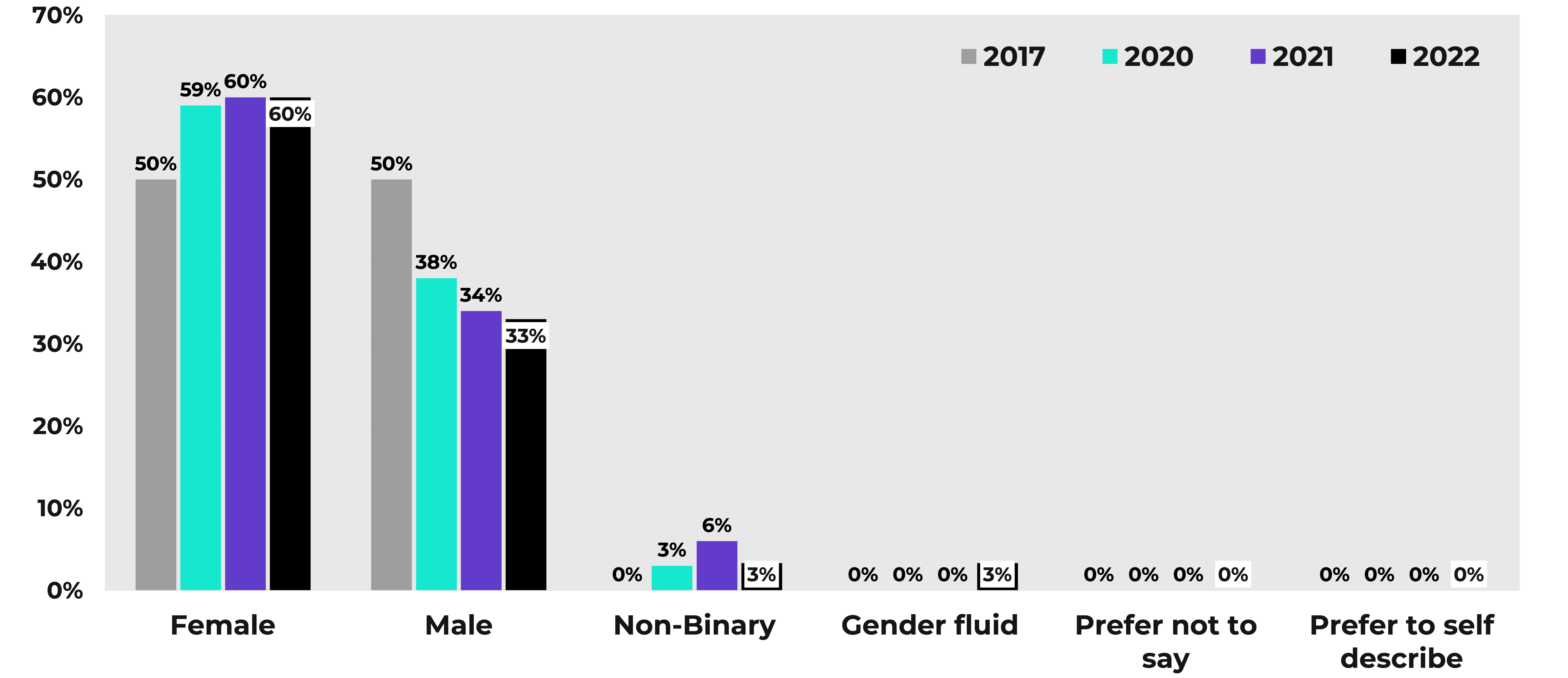
We have a majority female-identifying staff team. No significant change compared to the previous year.
2022 - 30 respondents
Trans status
Do you consider yourself to be Trans?

No significant change compared to the previous year.
2022 - 30 respondents
Sexual orientation
Which of the following best describes your sexual orientation?
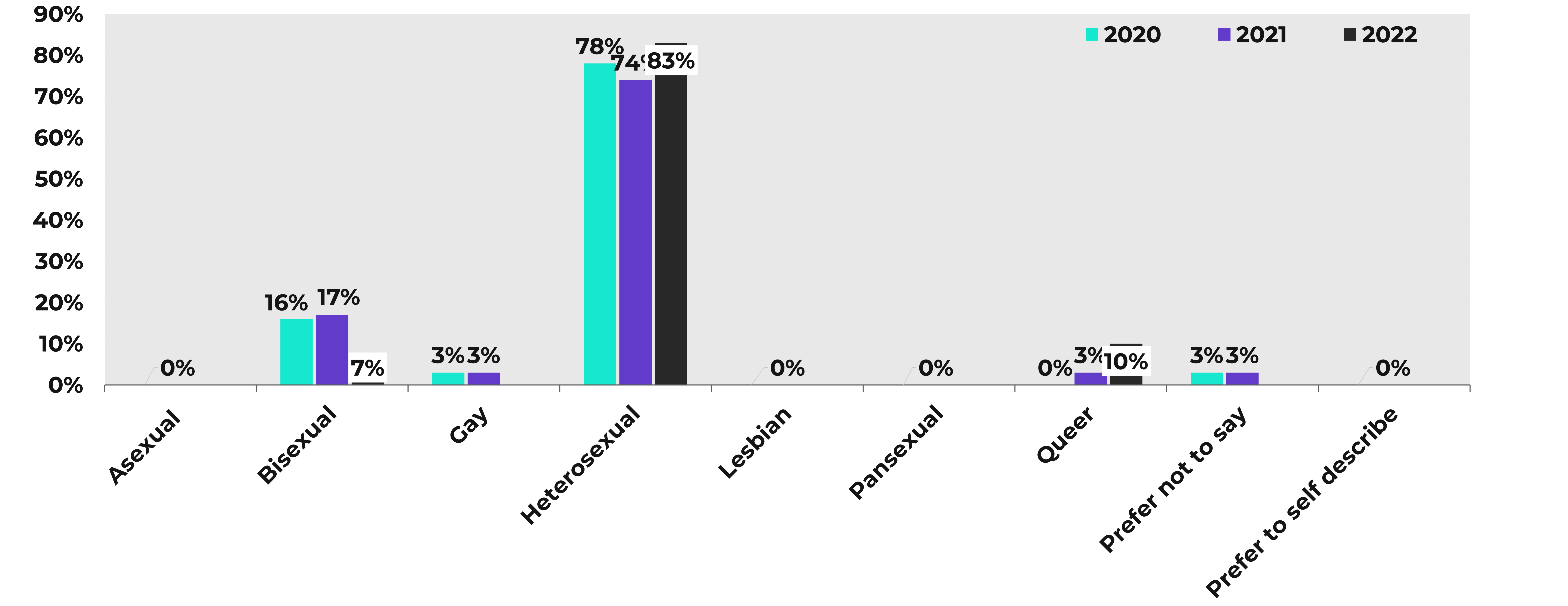 This year has seen an increase in the proportion of team members that identify as heterosexual and queer, and a decline in those identifying as bisexual.
This year has seen an increase in the proportion of team members that identify as heterosexual and queer, and a decline in those identifying as bisexual.
2022 - 30 respondents
Age
Which age bracket do you fit in?

70% of our staff team are between the 25 and 34 age bracket. Nearly three quarters of staff team are 34 and below.
2022 - 30 respondents
Education (socio-economic background)
What type of school did you mainly attend between the ages of 11-16?
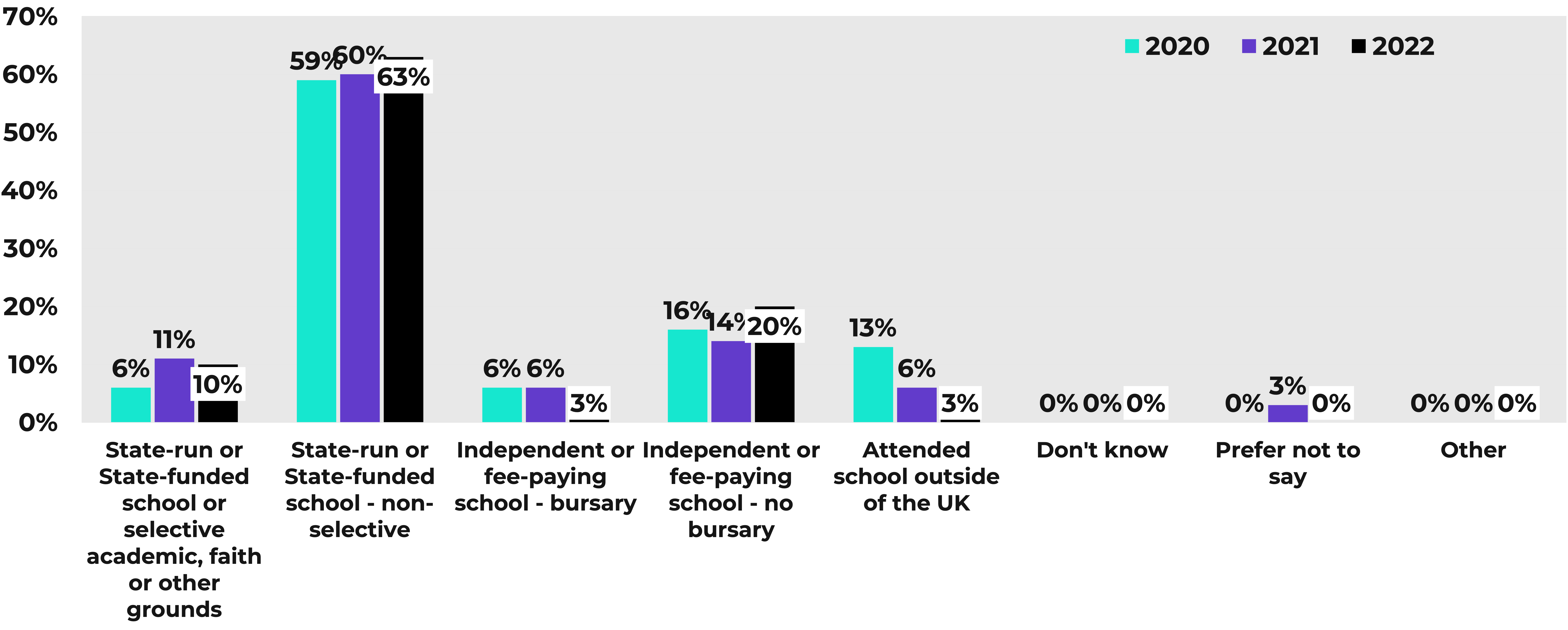
The majority of our staff team attended a state-run or funded school.
2022 - 30 respondents
Parental qualifications (socio-economic background)
What is the highest level of qualifications achieved by your parent(s) or guardian(s) by the time you were 18?
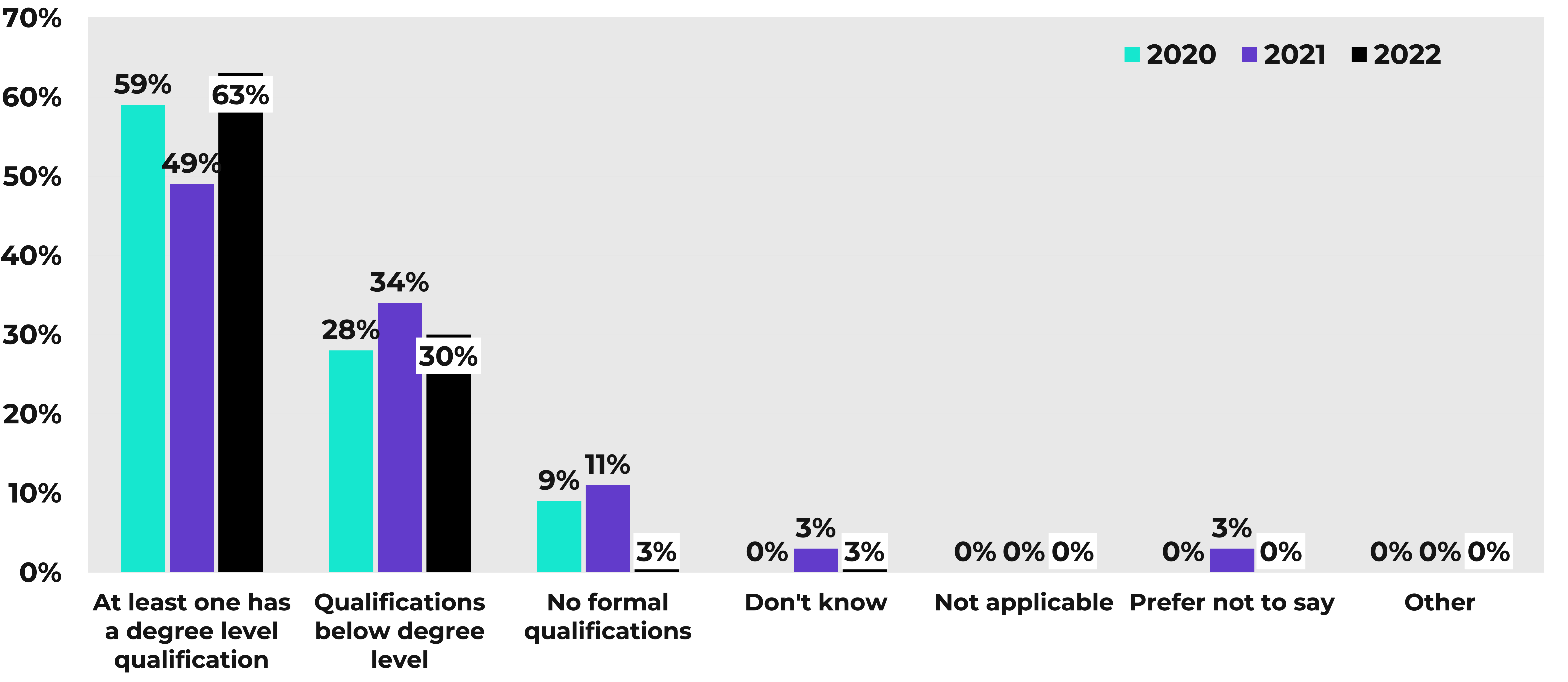
By the time they were 18, the majority of staff team’s parent(s) or guardian(s) had at least one degree level qualification.
2022 - 30 respondents
Self-description (socio-economic background)
Compared to people in general, would you describe yourself as coming from a lower socio-economic background?

A third of the staff team self-identify as coming from a lower socioeconomic background.
2022 - 30 respondents
Ethnicity
Please select the ethnicity that best represents you. As you make your decision, please think about what ethnic group means to you: that is, how you see yourself. Your ethnicity is a mixture of culture, religion, skin colour, language and the origins of yourself and your family. It is not necessarily the same as nationality.
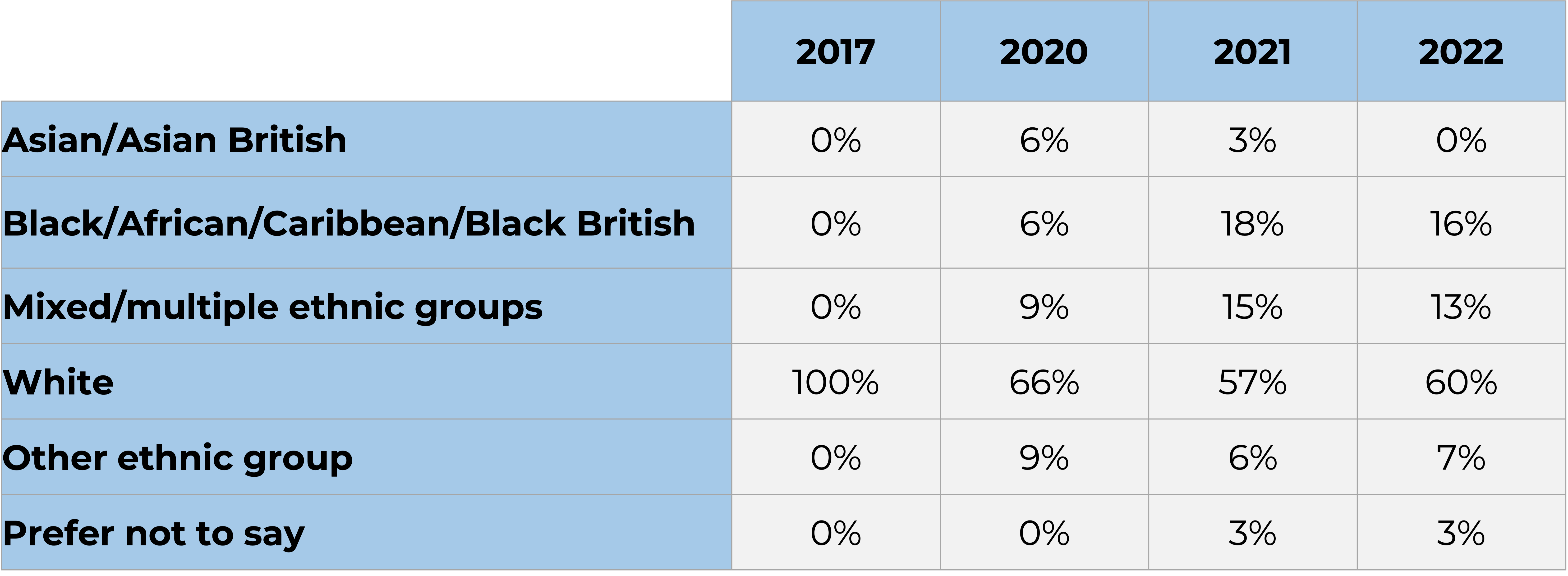
Overall decrease in staff members from the Global Majority (8% decrease). 2022 is the first year of data collection since 2017 that the staff team did not have representation of all ethnic groups as per the Census.
2022 - 30 respondents
Religion
What is your religion/faith if any?

The vast majority of staff team are non-religious. No significant change compared to the previous year.
2022 - 30 respondents
Disability
The Equality Act 2010 defines a person as disabled if they have a physical or mental impairment, which has substantial and long term (i.e. has lasted or is expected to last at least 12 months) negative effect on their ability to carry out normal daily activities.
Do you consider yourself to have a disability according to this definition?
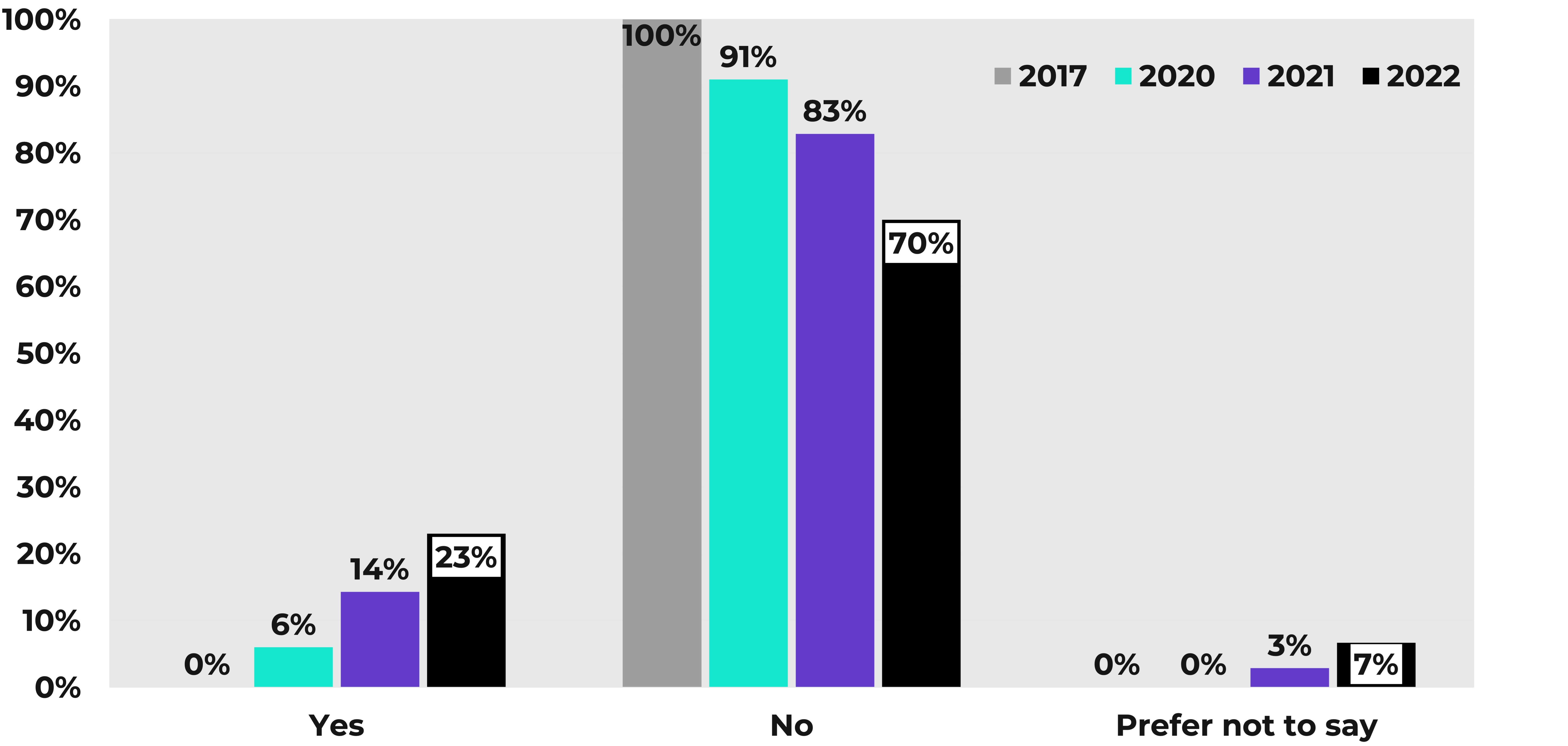
Almost a quarter (23%) of staff identify as Disabled, the largest ever proportion.
2022 - 30 respondents
Neurodivergence
Do you consider yourself to be neurodivergent?
(e.g. ADHD, Dyslexic)
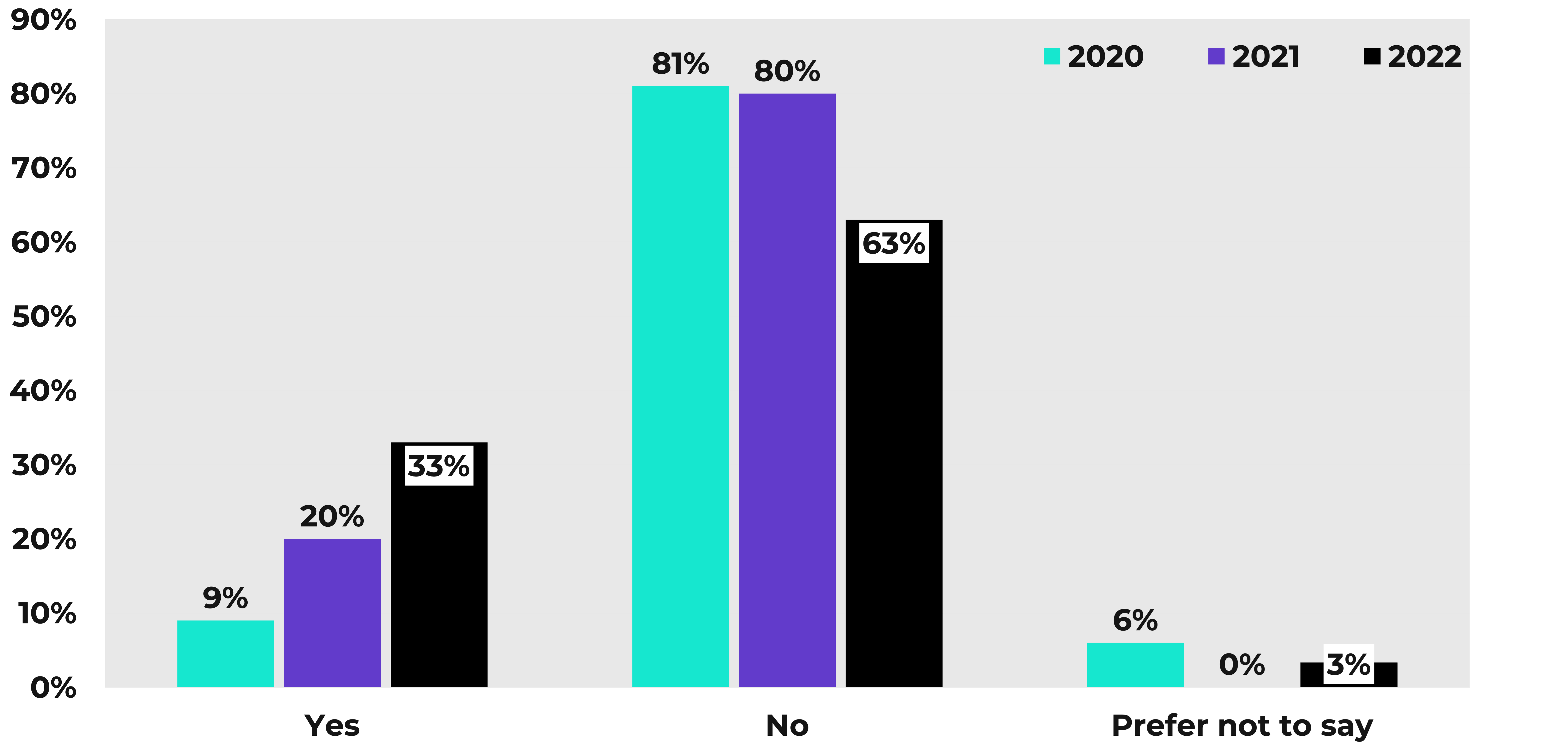
A third of staff (33%) consider themselves to be neurodivergent. Over a 50% increase compared to 2021, and close to quadruple 2020’s representation.
2022 - 30 respondents
Caring responsibilities
Do you have caring responsibilities? (e.g. children living at home, providing care for a relative, partner or friend)
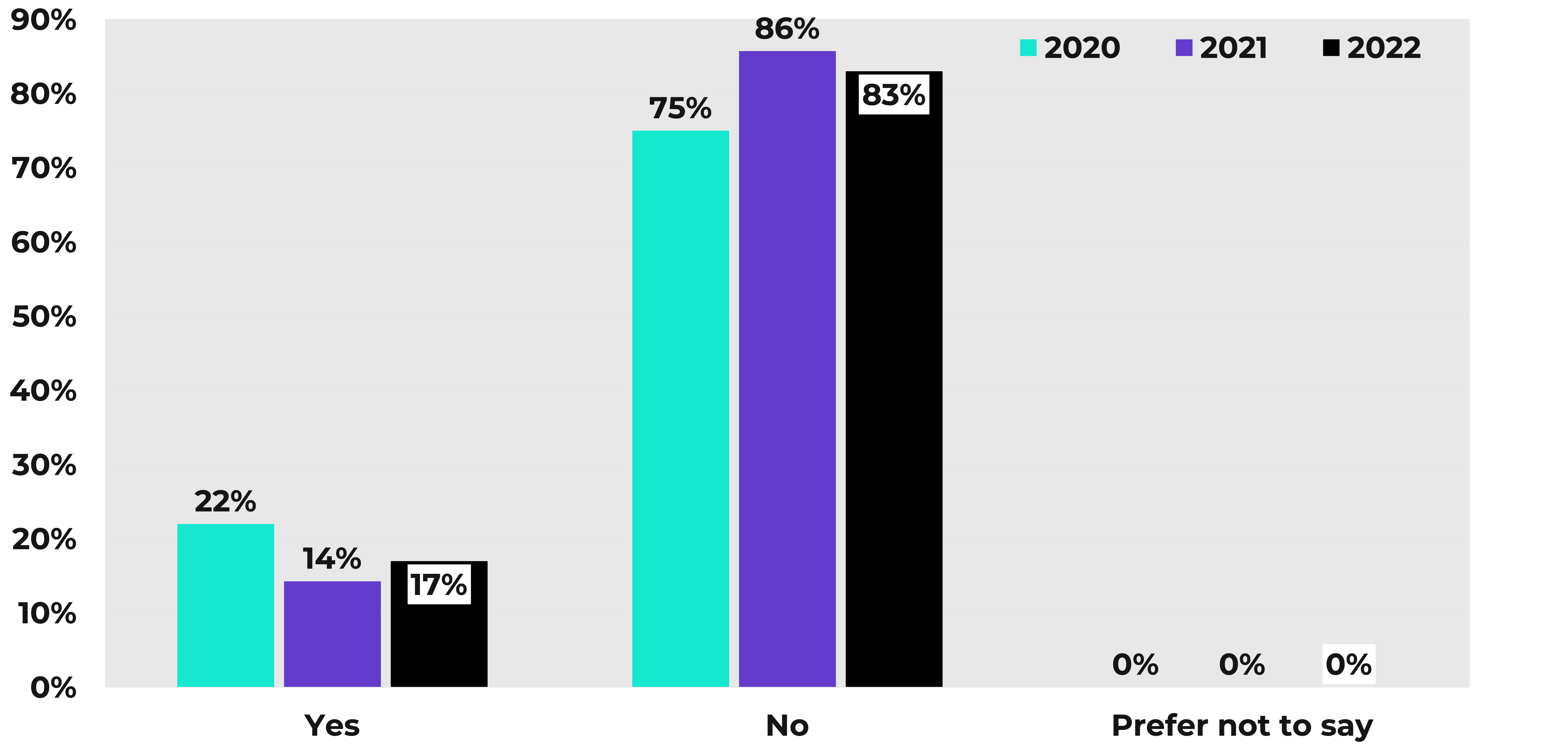
The vast majority of the team do not have caring responsibilities. No significant change compared to the previous year.
2022 - 30 respondents

